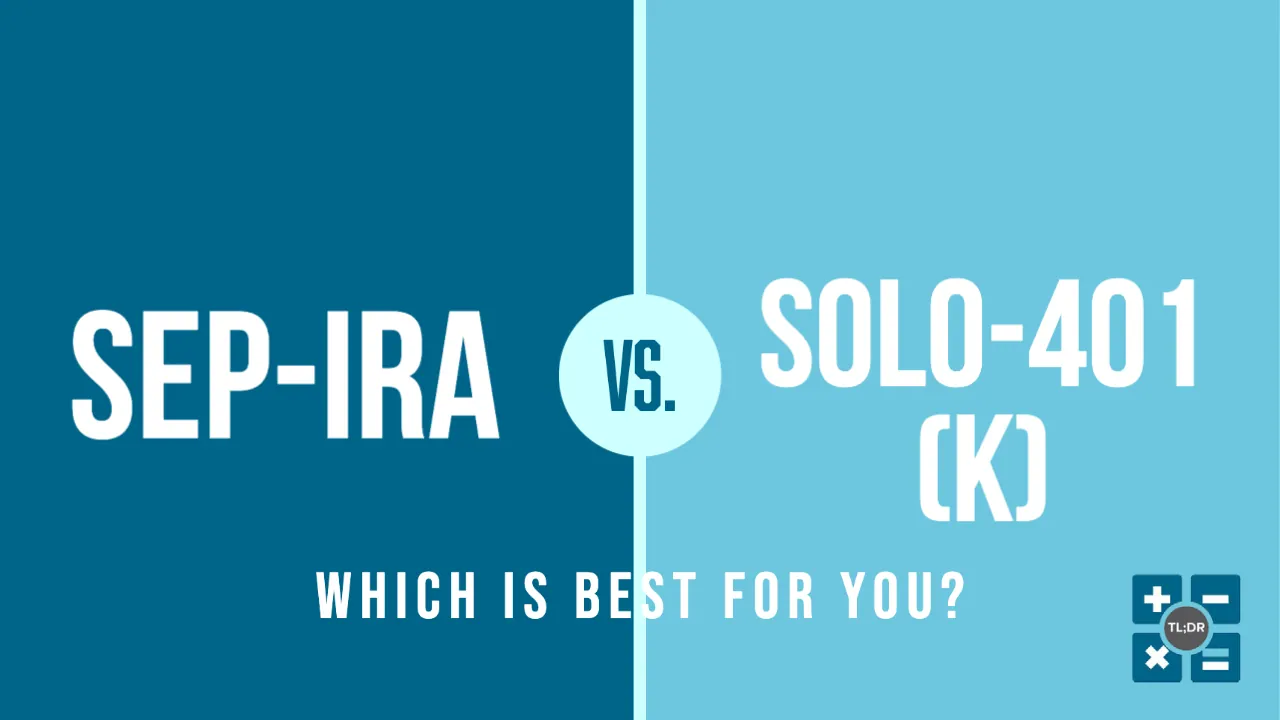As a small business owner or self-employed individual, choosing the right retirement plan is a critical decision that can impact your financial future. Two of the most popular options are the Solo 401(k) and the SEP IRA. Both offer significant benefits, but the best choice depends on your business structure, income, and long-term goals. Here’s a breakdown of the two plans to help you decide which is right for your small business.
What Is a Solo 401(k)?
A Solo 401(k), also known as an Individual 401(k), is a retirement plan designed specifically for self-employed individuals or business owners with no employees (apart from a spouse). It allows you to contribute as both the employer and the employee, enabling higher contribution limits than many other plans.
Key Features of a Solo 401(k):
- Contribution Limits:
- Catch-Up Contributions:
- Roth Option:
- Loan Availability:
For 2024, you can contribute up to $22,500 as an employee, plus an additional employer contribution of up to 25% of your net earnings, with a total limit of $66,000.
If you're 50 or older, you can contribute an additional $7,500, making the maximum $73,500.
Many Solo 401(k) plans offer a Roth option, allowing you to contribute post-tax dollars and enjoy tax-free withdrawals in retirement.
Some plans allow you to borrow against your Solo 401(k), offering added flexibility in financial emergencies.
Pros of a Solo 401(k):
- Higher contribution limits for those with substantial income.
- The ability to choose between traditional (pre-tax) and Roth (post-tax) contributions.
- Loan option for emergencies.
Cons of a Solo 401(k):
- Requires more administrative work, including filing IRS Form 5500 once the account exceeds $250,000.
- Limited to businesses with no employees (except for a spouse).
What Is a SEP IRA?
A SEP IRA (Simplified Employee Pension Individual Retirement Account) is a retirement plan ideal for small business owners, freelancers, and self-employed individuals. It’s especially suited for businesses with a small number of employees or no employees.
Key Features of a SEP IRA:
- Contribution Limits:
- Employer-Only Contributions:
- No Catch-Up Contributions:
You can contribute up to 25% of your compensation, with a cap of $66,000 in 2024.
Contributions are made solely by the employer, and the same percentage of compensation must be contributed for all eligible employees.
Unlike the Solo 401(k), SEP IRAs do not allow additional contributions for those aged 50 or older.
Pros of a SEP IRA:
- Easy to set up and manage with minimal administrative requirements.
- Suitable for businesses with employees, as contributions can cover them too.
- Tax-deductible contributions reduce your taxable income.
Cons of a SEP IRA:
- Employees cannot contribute to their accounts—only the employer can.
- Requires equal contribution percentages for all eligible employees, which can be expensive.
How to Choose Between a Solo 401(k) and a SEP IRA
1.Do You Have Employees?
- If you have no employees, a Solo 401(k) is likely the better choice due to its higher contribution limits and additional options like Roth contributions.
- If you have employees, a SEP IRA may be more appropriate, as it allows you to provide retirement benefits for your staff.
2.How Much Do You Plan to Contribute?
- If you aim to maximize contributions and have a high income, a Solo 401(k) offers more flexibility to contribute higher amounts.
- If you prefer simplicity and a straightforward contribution structure, a SEP IRA is easier to manage.
3.Do You Want a Roth Option?
- If having a Roth option (post-tax contributions) is important to you, a Solo 401(k) is the better choice.
4.Are You Concerned About Administrative Tasks?
- A SEP IRA is easier to set up and maintain, with no annual filings required.
- A Solo 401(k) involves more paperwork, especially as your account balance grows.
Conclusion
Both the Solo 401(k) and SEP IRA are excellent retirement options for small business owners, but the right choice depends on your specific needs. If you’re a solo entrepreneur looking to maximize contributions and flexibility, the Solo 401(k) is likely the better fit. However, if you have employees or prioritize simplicity, the SEP IRA may be the way to go.
No matter which plan you choose, starting early and contributing consistently will set you up for a financially secure retirement. If you're unsure, consulting a financial advisor can help you tailor the best plan for your business goals.







